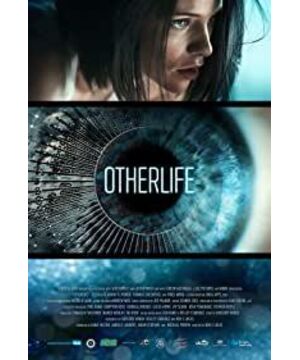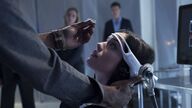Every thing has its drawbacks, things that look perfect, there is no problem at all, and it's just not discovered for the time being!
Virtual technology, if it is just a drop of eye drops, you can enter a virtual world, what a wonderful thing that should be. Isn't our life based on "experience" and "memory"? In this way, we can experience many, many incredible things, the pauper can also live a luxurious life, and single dogs can be romantic to the extreme. In this way, even if real life is terrible, if you give everyone a few hours of dreams a day, the happiness of all mankind is sure to be full.
The question is, what about the problem? What's wrong with the virtual world. As envisioned in the film, there can be various products, but don’t forget that the government will want a “virtual prison”. And if the "virtual prison" is used in reality, it still makes mistakes, and it becomes infinite in a year, then how painful it will be. My statement like this is just a simple sentence, but you can think about the horror behind it carefully.
The protagonist is a genius girl. She inherited her father's "patent" research-virtual drugs, and also co-founded a company with others, but in fact her purpose is to help her brother who is in a vegetative state (brain dead). As a result, when she personally experimented with "virtual imprisonment", she fell into a situation where "true and false are inseparable". Although she was under safe surveillance, and she herself broke through the limited "virtual prison", leaving a "happy computer representation" on the monitor.
Originally, a "virtual prison" meant entering a virtual confined space (limited space, less data, and easy control of time variables). If scientists want to study virtual instruments that directly act on the brain, they must start with this one. Only if this effect is good and can be controlled (free and safe in and out of the virtual world), then it is possible to enter the next step of "world shaping". However, unexpectedly, the protagonist broke the "virtual prison". In the virtual world, she even saw "another future": the research was successful, but the partner set her up and imprisoned her in the virtual world. She relied on her brain itself. Her self-control ability broke through the prison (in fact, it was still in the virtual world), and then she saw her partner making a fortune with the results of her research, so she sneaked into the company, took the research results to stimulate her brother’s computer, let He woke up, but it didn't work. At this time, a person next to her told her: If there was such a choice, the brain-dead patient would have used it (this may be the rational voice in her own brain). And she discovered that the injuries she suffered when she escaped from the prison disappeared without a trace. Only then did I find that I was still in the virtual world.
After waking up, she resolutely gave the company to the partner, but withdrew her own patent (to put it bluntly, the company is finished). The partners were still very happy, because the real-life virtual experiment unexpectedly produced a breakthrough. You know, the protagonist has successfully escaped from prison, and has entered a larger virtual world, and can interact with that world, and even wake up again. In other words, the research has been basically completed, and the rest is to make a fortune. Because the protagonist extracts the patent, he angrily wants to imprison her in the virtual world again, and then usurp everything. It's a pity that the protagonist has experience after all, wakes up successfully, and puts his partner into virtual imprisonment with his own way of humanity, and teaches him a good meal before letting him go.
Of course, people who have experienced this will never want to do it again. In other words, in virtual experience, the potential danger is not that you can't get out, but that you enter an endless loop. That kind of experience is too scary. Therefore, the protagonist himself would rather choose the real world and watch his brother die than to study.
The movie tells us that we should experience it with the 3D eyes in front of us. Don't try those virtual experiences that directly affect the brain. 17.11.2
View more about OtherLife reviews











